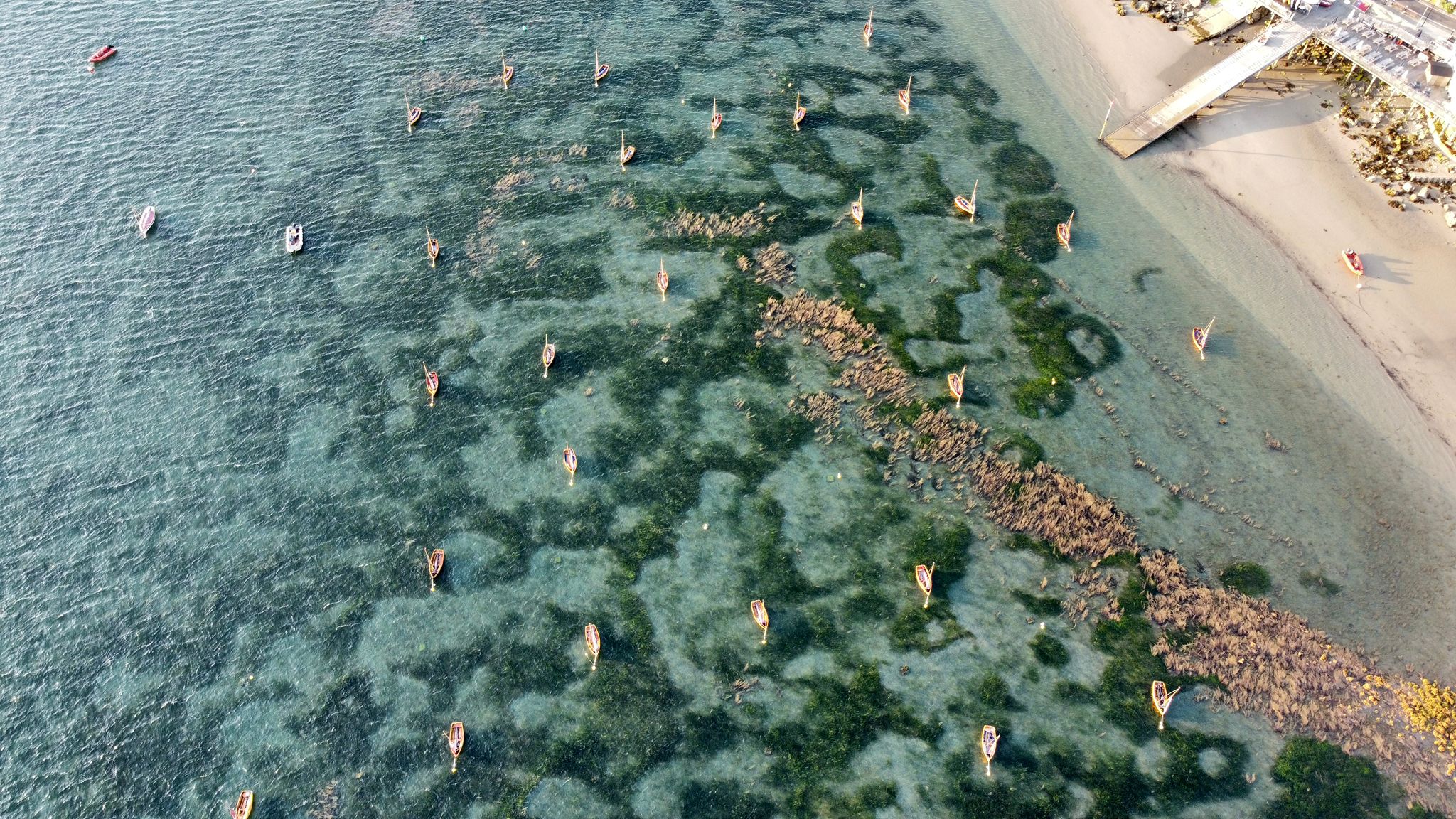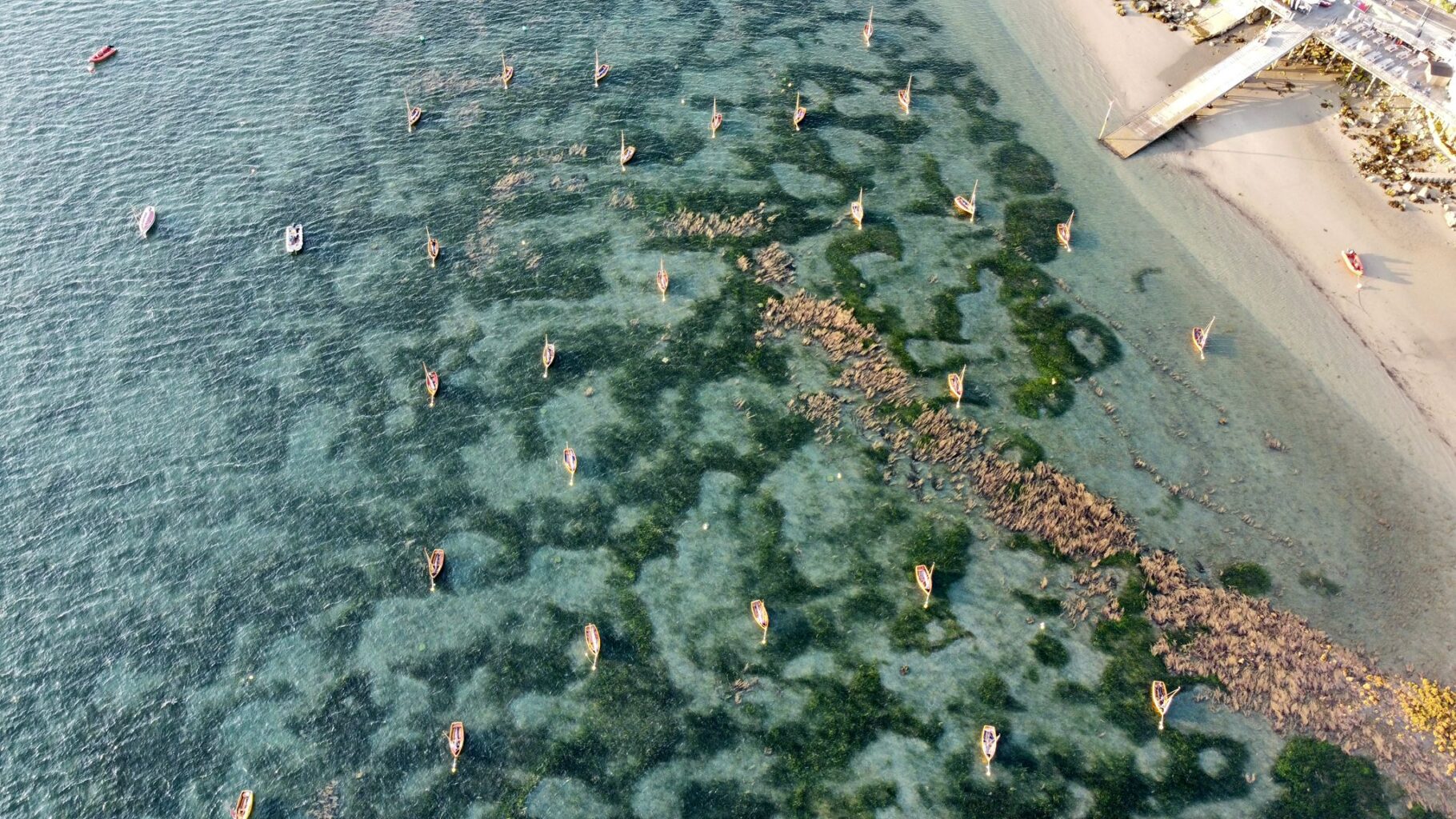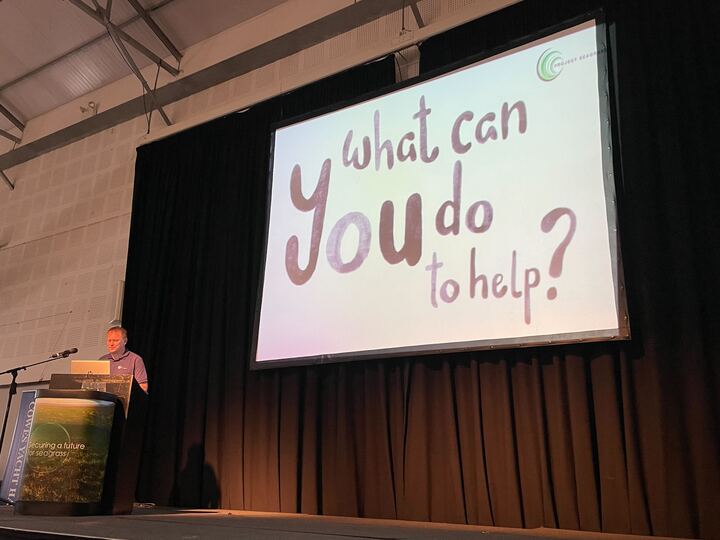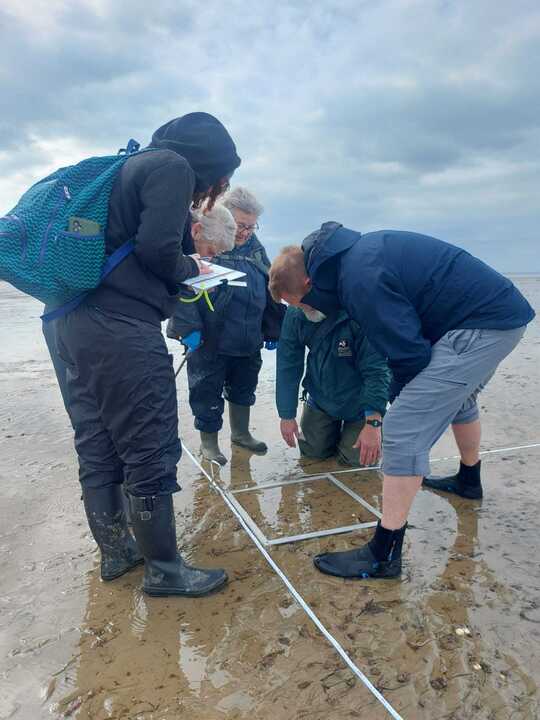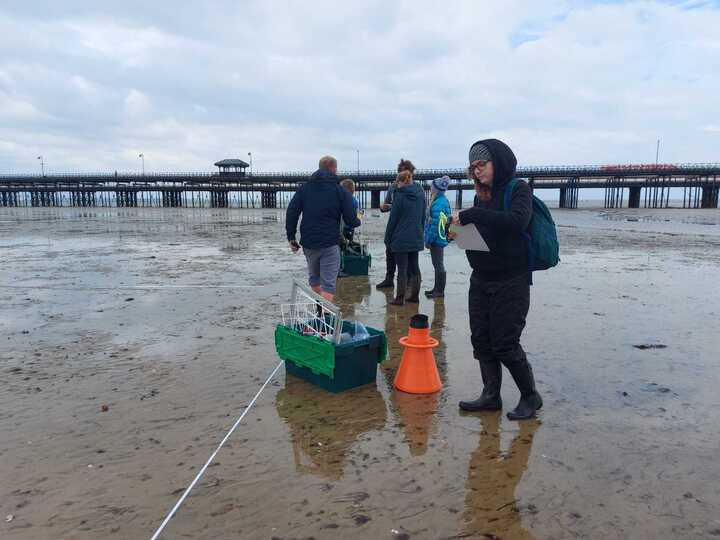Seagrasses, the flowering plants that grow underwater on coasts all over the world, are both valuable and vulnerable. They provide food and shelter for many species of fish and invertebrates; improve water quality; stabilize the sea bottom and reduce erosion; and trap more carbon, per acre, than any other ecosystem. Seagrass even reduces pathogens that cause gastroenteritis, likely saving millions of people from serious illness each year. But seagrass is disappearing at a rapid pace, done in by pollution, destructive fishing practices, and boat moorings.
Unfortunately for seagrasses, the places they grow best—shallow, naturally sheltered bays—are also the best places to moor boats. Around the Isle of Wight, off England’s southern coast, moorings are causing significant damage to seagrass meadows. Heavy mooring chains drag across the ocean floor, ripping out the plants. In summer, around 300 moorings are set within the subtidal seabed at Seaview Village, securing sailing dinghies.
Little seagrass remains near the village, and the fragments that are left are too small to regenerate by themselves. With the right intervention, however, these slow-growing plants will eventually be able to sustain themselves and spread seaward and along the coast. Fortunately, the Seaview boating community is actively looking to help seagrass recover.
The project has three main parts:
- Restoration. Our project partner will map seagrass beds at Seaview Village and regenerate denuded areas, using expertise acquired from previous restoration work.
- Eco-friendly boat moorings. To start, they will install several advanced mooring systems, which offer safety features to boaters and don’t have chains that tear through seagrass beds.
- Community engagement. Finally, they will get lots of local people involved, something we know is key to long-term conservation success. Using well established citizen-science methods, they will train volunteers to monitor seagrass near the village.
Our project partner is Project Seagrass, with whom we are working on a seagrass project in Porthdinllaen, Wales.


